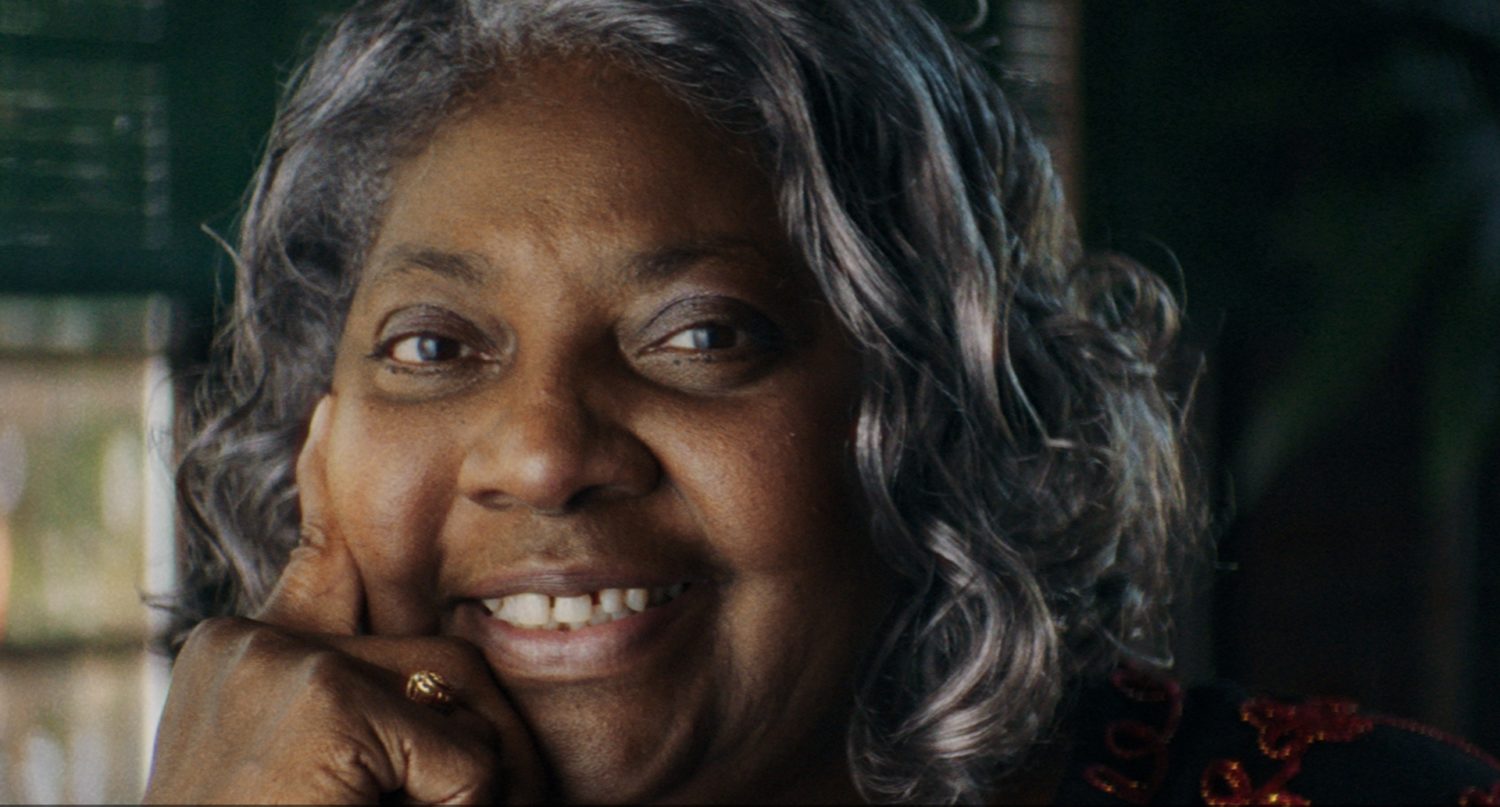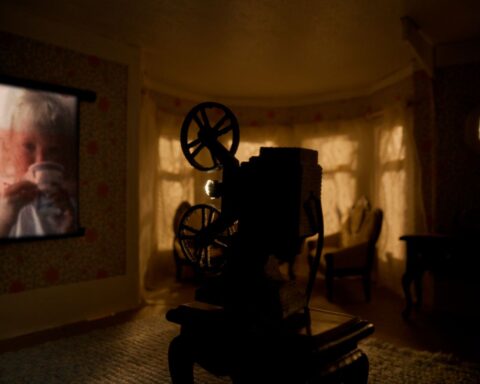Haligonian Ben Proudfoot is a back-to-back Oscar nominee after last year’s A Concerto Is a Conversation. This year, Proudfoot arguably leads the strong crop of Oscar-nominated documentary shorts with The Queen of Basketball. The New York Times Op-Doc has the timeliest hook of the bunch as it recounts the story of athlete Luisa ‘Lucy’ Harris. The basketball star, who died mere weeks ago at age 66, is a truly memorable character. The film lets Harris recall her life story in her own words. She chuckles effervescently as she recalls how she broke barriers of race and gender pursuing her passion. As the only Black athlete on her high school team, she conveys how she helped her peers smoke the competition. Her career is one of being a trailblazer and being the best while also being the first.
For example, Harris recalls being the first woman to score a basket in the Olympics. She then tells of her major coup: being the first woman officially drafted for the NBA. However, motherhood came calling and her life took a different path. As Harris reflects upon her story, a smile never leaves her face. The Queen of Basketball features many of the traits that made A Concerto Is a Conversation so appealing, particularly Proudfoot’s use of intimate direct address interviews. Harris’s joy is infectious, and it sets a perfectly appealing tone for revisiting history. She looks back without regrets or anger. This film offers a true sense of pride, and one can observe as it hits Harris that she leaves a remarkable legacy. As character-driven docs go, The Queen of Basketball is a slam-dunk. (Watch it here.)
From Basketball to Football
Another story of trailblazing athletes comes in Audible, directed by Matt Ogens. This festival favourite drops audiences into the locker room of the Maryland School for the Deaf. Audible observes a group of students, mostly members of the football team and cheerleaders, relishing their final year. The doc focuses primarily on Amaree McKenstry, the star footballer and charismatic prom king who is an obvious leader among his peers. Audible observes as Amaree and his classmates thrive in an environment in which deafness is the norm. They express the sense of empowerment they feel on the field. The vibrations of musical beats and stomping feat fuel them as they lead the school on a winning streak à la Lucy Harris.
Moreover, they find unity whereas typical high school environments can be alienating. This sentiment adds a tragic note to the film as they reflect upon a friend and former classmate, who was ostracized for being both hearing-impaired and gay when he moved to a hearing school.
Audible is strikingly shot with memorable characters, but it meanders considerably for a short. Where other nominees have tighter focus, Audible explores school life more freely. It veers in and out of characters’ lives. The doc also features an intricate sound design, which amplifies and dials back the audio dramatically. It’s a cue similarly used to explore deafness in films like Sound of Metal. However, the emphasis on the doc’s audio texture seems tailored for a hearing audience. It’s nevertheless an admirably immersive experience, and a memorable portrait of a high school journey rarely depicted on screen.
Schoolyard Bullies
School life receives a quirky consideration in When We Were Bullies. Director Jay Rosenblatt uses a chance encounter with a fifth grade classmate to revisit an event from 50 years ago. This coincidence focuses on a specific incident that the director touched upon in his previous work. It’s a bizarre episode in which his teacher held up the class for recess because one kid, Dick, was talking. The kids, the story goes, responded by circling Dick in the schoolyard and beating him up. Rosenblatt can’t shake this Lord of the Flies moment from his childhood.
He therefore traces through his fifth-grade school picture and checks in with more former classmates. Many of them remember Dick, but few students recall the bullying episode. Those who do remember, however, recall it vividly. When We Were Bullies playfully analyses the social dynamics that inspire people young and old to hurt others. It’s a personal reflection on kindness and meanness, but also the social forces that shape our behaviour.
Rosenblatt offers arguably the most offbeat stylistic approach of the five nominees. When We Were Bullies is an eccentric collage of animation and interviews as Rosenblatt uses whatever materials he can to reconstruct memories to the best of his abilities. The clarity of what really happened that day in the schoolyard never emerges, but the study is more satisfying without closure. The doc invites a larger consideration of why people often feel the need to play rough to get ahead. Very timely!
Where Is Home?
Stories of homelessness and displacement unite the two other Oscar-nominated documentary shorts: Three Songs for Benazir and Lead Me Home. Both join Audible in making a strong showing for Netflix among the Oscar-nominated documentary shorts. Benazir, firstly, comes from directors Gulistan and Elizabeth Mirzaei (Laila at the Bridge). It’s an intimate portrait of a young Afghan family living in a displacement camp outside Kabul. The film observes young couple Shaista and Benazir as they start a family. Shaista aspires to join the Afghan National Army while Benazir readies for motherhood. They face practical concerns about how they’ll provide security for their family. However, the call for duty that pulls Shaista away from home brings additional risks that come with working near the poppy fields.
Three Songs for Benazir watches as life continues day by day in the camp. All the while, a blimp hovers above Shaista and Benazir. This ever-present aircraft documents their every move and those of their neighbours. The film intriguingly observes a life spent under observation, and the added stresses that surveillance brings. Three Songs for Benazir, moreover, witnesses elements that shape the lives of these family members, offering a microcosm for displaced families worldwide. Interested audiences may want to check out the Oscar-shortlisted feature doc Simple as Water about Syrian refugees in limbo.
Lead Me Home
A very strong contender, finally, comes in Lead Me Home. Directed by Pedro Kos (Rebel Hearts) and Jon Shenk (An Inconvenient Sequel), the film also considers displacement, but with a scope both intimate and epic. Lead Me Home observes the exploding homelessness crisis by considering three cities: Los Angeles, San Francisco, and Seattle. The film features a wide range of characters who candidly let the cameras bear witness to their challenges. Kos and Shenk offer an empathetic portrait of life on the streets by capturing the daily battles of people who simply want the security and dignity of a home. This is character-driven observational cinema at its best. Nobody is spoken for, yet subjects bravely invite the world to observe the daily hell of an unsheltered life.
For example, Kos and Shenk observe a mother who buys groceries instead of feeding her kids with food from their shelter because she wants to teach them a sense of normalcy: this is what it means to feed yourself. There’s a truly heartbreaking moment in the film when the mother candidly tells a social worker about the dignity and agency that grocery shopping affords her. At the same time, Lead Me Home observes this heartache amidst three growing cityscapes of luxury condos and gentrified communities. The widening rich-poor gap in America will only make things harder.
Like Three Songs for Benazir, Lead Me Home gains remarkable access to its subjects. However, it goes beyond the question of access to engage more fully with the social factors that contribute to homelessness. It also lets the arguments come directly from the voices of people experiencing homelessness. The doc is an extraordinary feat that affords agency to its subjects while using their stories to create a compelling and expansive study of a crisis that grows as quickly as the towers that mask it from view.














